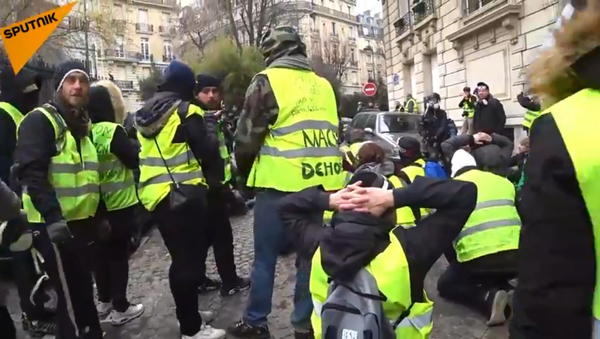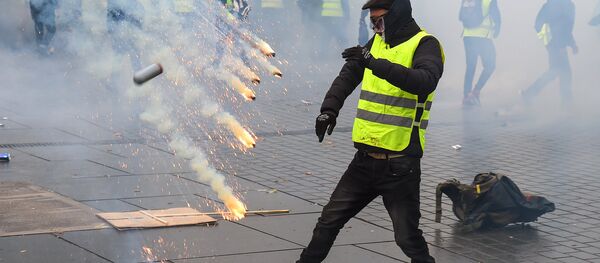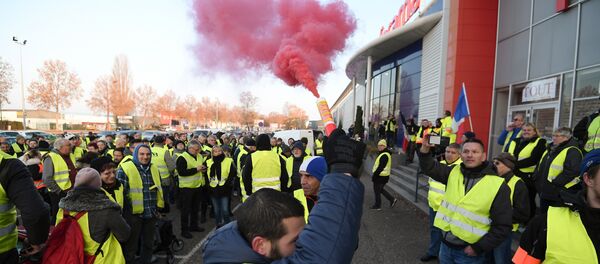Sputnik: One of the yellow vests protesters' demands are popular votes allowing citizens to examine policy proposals. Will these demands come to fruition?
Harvey Feigenbaum: First of all you have to put this in perspective: these kinds of protests are very common in France, basically they've been going on since May ‘68, there have always been various kinds of protest against government policy. The most similar protests to the recent one occurred in 1995, when people protested the conservative government of the time, which tried to introduce budget-cutting reforms, and there's a lot of similarity between that protest and the current one.
Sputnik: There has been talk of the yellow vests' representation in next May's European elections.
Harvey Feigenbaum: That is on the other hand much more likely. The problem that the yellow vests have is they really don't have an organization and they don't really have leadership, but some people who claim to represent the yellow vests movement have been talking about creating a party, and in that case, the polls suggest that they would do quite well.
READ MORE: France's Macron Turns to Sarkozy For Aid Amid ‘Yellow Vests' Protests — Report
Sputnik: If we talk about the yellow vests movement in France, how united is the movement overall? Is there really a chance that they will be able to come up with candidates uniting to figure out what demands they have and who is going to represent them? Do you see them fractioning off into several groups?
Harvey Feigenbaum: They'd have to invent an organization that they don't yet have, so it's not impossible. In Spain, you have the Indignados Movement, which did lead to the creation of the Podemos Party, which became the second largest party on the left. So it's possible for these things to happen, but right now they're not there.
Sputnik: The protest movement has already actually spilled over to other countries; do you think it's going to be something that's going to be quite contagious, or do you think it's going to die out over Christmas?
So these things have largely — and when you have, of course, the immigration issue, which has inflamed a lot of people — [made] people very upset and some of that feeling gets translated into these various protest movements of which the yellow vests is one.
Sputnik: These started over a fuel price tax, a diesel tax protest and they've grown into discontent with politics in general. What do you think the prospects are for Macron's government? Will he be able to survive and will there be, perhaps, after Christmas, when it gets warmer and the hangovers are over, and the money has still not accrued after the holiday spending, will we see a resurgence of this, and how will this affect the French government?
Harvey Feigenbaum: First of all you need to recognize that a lot of these the yellow vests movements are motivated by people who just don't like Macron and they don't like him, at least partially, because he has a style that's quite arrogant and tends to say things that people interpret as his disdain for voters. There is not much that puts the Macron administration in danger, because elections are so far away.
READ MORE: Almost 180 Detained in Paris During Saturday 'Yellow Vests' Riot — Reports
I think Macron's real problem is that he hasn't learned to be a democratic politician yet. He needs to learn that simply being a technocrat, which is really what he is, cuts both ways. People do recognize he knows what he's doing but, on the other hand, they don't like him personally. if he can make a few more movements in the direction of learning how to be a democratic politician, which is to say showing at least some effort to be sensitive to the interests of common people, it might well be that he can recover.
The views expressed in this article are solely those of Harvey Feigenbaum and do not necessarily reflect the official position of Sputnik.





